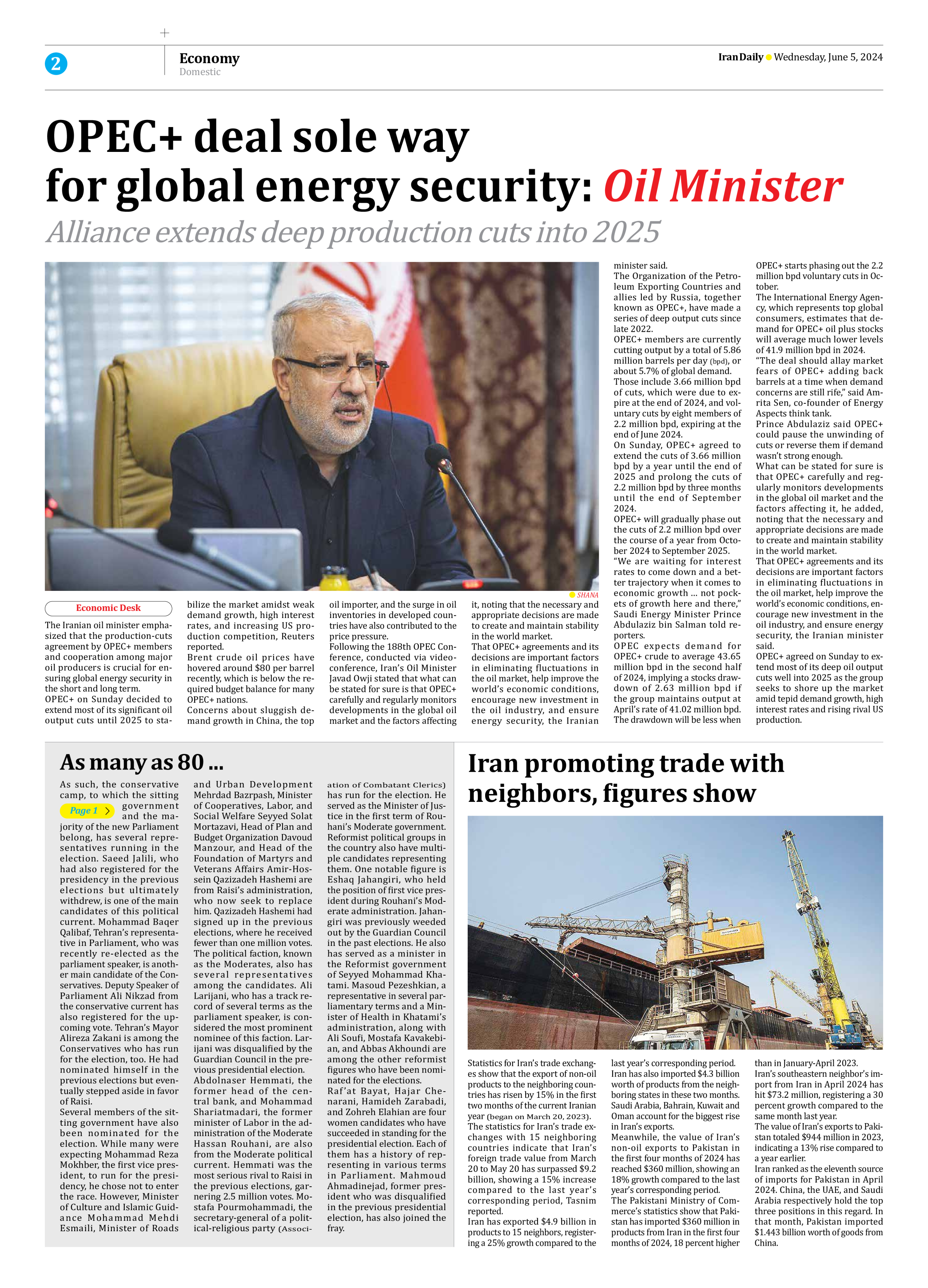
As many as 80 ...
Page 1
As such, the conservative camp, to which the sitting government and the majority of the new Parliament belong, has several representatives running in the election. Saeed Jalili, who had also registered for the presidency in the previous elections but ultimately withdrew, is one of the main candidates of this political current. Mohammad Baqer Qalibaf, Tehran’s representative in Parliament, who was recently re-elected as the parliament speaker, is another main candidate of the Conservatives. Deputy Speaker of Parliament Ali Nikzad from the conservative current has also registered for the upcoming vote. Tehran’s Mayor Alireza Zakani is among the Conservatives who has run for the election, too. He had nominated himself in the previous elections but eventually stepped aside in favor of Raisi.
Several members of the sitting government have also been nominated for the election. While many were expecting Mohammad Reza Mokhber, the first vice president, to run for the presidency, he chose not to enter the race. However, Minister of Culture and Islamic Guidance Mohammad Mehdi Esmaili, Minister of Roads and Urban Development Mehrdad Bazrpash, Minister of Cooperatives, Labor, and Social Welfare Seyyed Solat Mortazavi, Head of Plan and Budget Organization Davoud Manzour, and Head of the Foundation of Martyrs and Veterans Affairs Amir-Hossein Qazizadeh Hashemi are from Raisi’s administration, who now seek to replace him. Qazizadeh Hashemi had signed up in the previous elections, where he received fewer than one million votes.
The political faction, known as the Moderates, also has several representatives among the candidates. Ali Larijani, who has a track record of several terms as the parliament speaker, is considered the most prominent nominee of this faction. Larijani was disqualified by the Guardian Council in the previous presidential election.
Abdolnaser Hemmati, the former head of the central bank, and Mohammad Shariatmadari, the former minister of Labor in the administration of the Moderate Hassan Rouhani, are also from the Moderate political current. Hemmati was the most serious rival to Raisi in the previous elections, garnering 2.5 million votes. Mostafa Pourmohammadi, the secretary-general of a political-religious party (Association of Combatant Clerics) has run for the election. He served as the Minister of Justice in the first term of Rouhani’s Moderate government.
Reformist political groups in the country also have multiple candidates representing them. One notable figure is Eshaq Jahangiri, who held the position of first vice president during Rouhani’s Moderate administration. Jahangiri was previously weeded out by the Guardian Council in the past elections. He also has served as a minister in the Reformist government of Seyyed Mohammad Khatami. Masoud Pezeshkian, a representative in several parliamentary terms and a Minister of Health in Khatami’s administration, along with Ali Soufi, Mostafa Kavakebian, and Abbas Akhoundi are among the other reformist figures who have been nominated for the elections.
Raf’at Bayat, Hajar Chenarani, Hamideh Zarabadi, and Zohreh Elahian are four women candidates who have succeeded in standing for the presidential election. Each of them has a history of representing in various terms in Parliament. Mahmoud Ahmadinejad, former president who was disqualified in the previous presidential election, has also joined the
fray.







